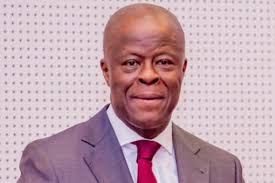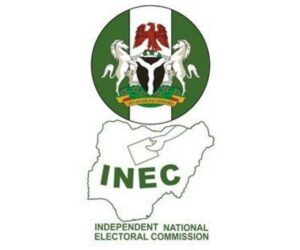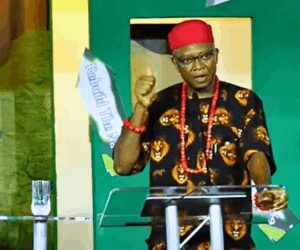Wale Edun, minister of finance and coordinating minister of
the economy, says Nigeria’s heavy debt service costs are a result of past
borrowing.
In an op-ed on Monday, Edun noted that despite the progress
made, tough realities persist, particularly heavy debt service costs that
consume a larger-than-ideal share of Nigeria’s revenues.
“This is the consequence of past borrowing and elevated
interest rates. At the same time, Nigeria’s fiscal revenue-to-GDP ratio, at
about 10 per cent after rebasing, remains one of the lowest in Africa,” he
said.
“This limits government resources for essential services
like health, education, and infrastructure.”
The minister said that a stable economy is crucial, but
stability alone is insufficient, adding that to deliver inclusive prosperity,
growth must be anchored in sectors that generate jobs and opportunities.
On October 1, President Bola Tinubu said Nigeria’s debt
service-to-revenue ratio has reduced from 97 percent to below 50 percent.
In November 2024, Tinubu said Nigeria’s debt
service-to-revenue ratio reduced from 97 percent to 65 percent.
‘NIGERIA’S OIL PRODUCTION REBOUNDED TO 1.68M BARRELS PER
DAY’
Edun said the government is providing necessary incentives
to revive investments in the oil and gas industry, with production rebounding
to 1.68 million barrels per day.
“In agriculture, we are boosting food supply, reducing
reliance on imports, and ensuring farmers have security and access to markets,”
he said.
“We are encouraging investment in factories and strategic
value chains, creating employment for our young and dynamic workforce.
“We are investing in technology and the creative sector to
harness the energy of our youth and position Nigeria as a hub of innovation.
“In addition, we are expanding exports beyond oil by tapping
into the global demand for critical minerals.”
The minister said Nigeria is leveraging public-private
partnerships to attract private capital for infrastructure development, citing
projects like the Ajaokuta-Kaduna-Kano gas pipeline and fibre expansion.
Edun added that Nigeria aims to achieve 7 percent growth by
2027/2028 through collaborative efforts between government, the private sector,
and citizens, focusing on deepening resilience, broadening opportunities, and
improving daily life.
Click to signup for FREE news updates, latest information and hottest gists everyday
Advertise on NigerianEye.com to reach thousands of our daily users









